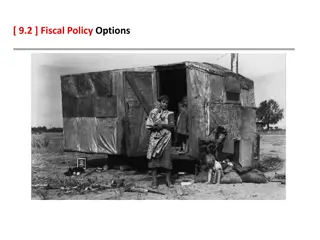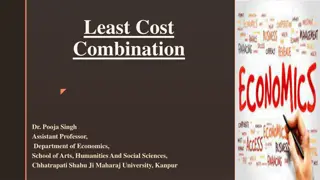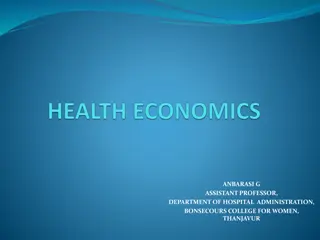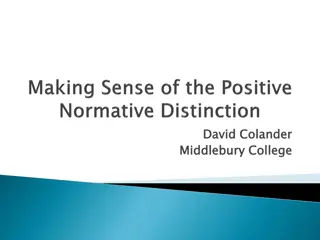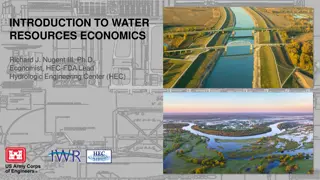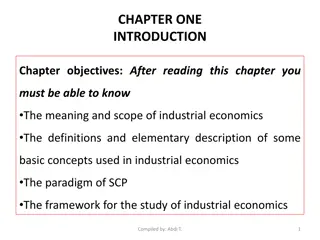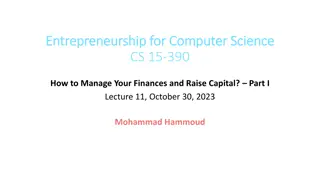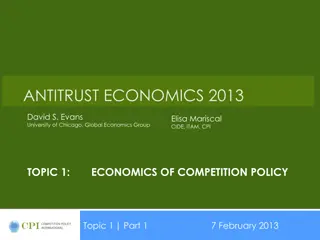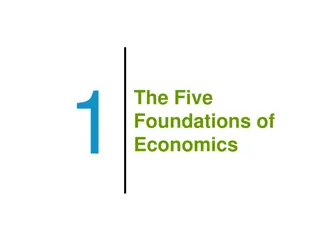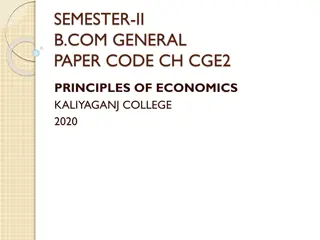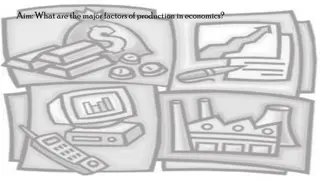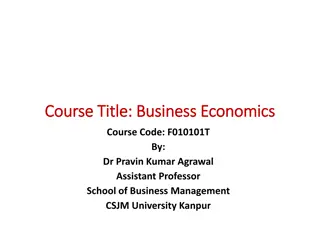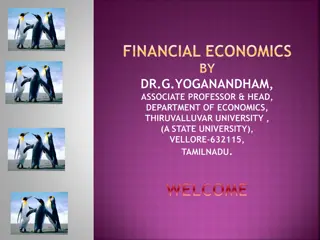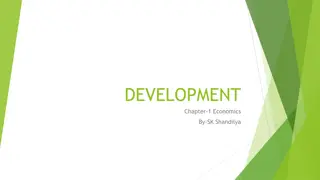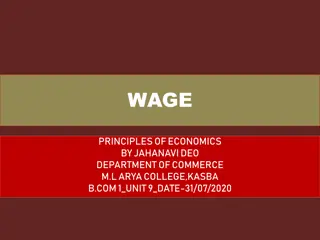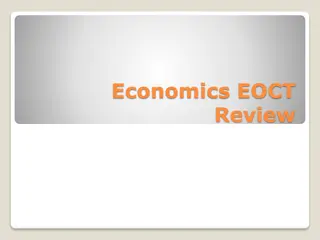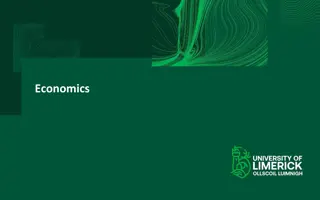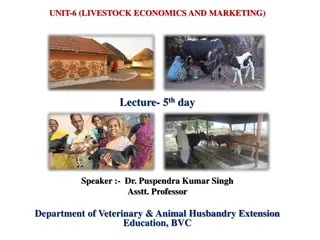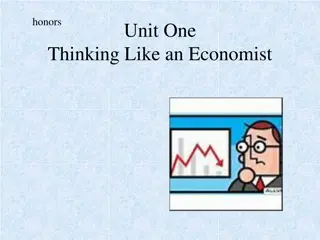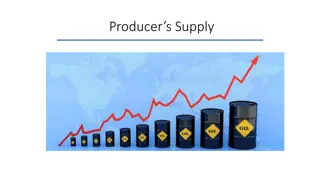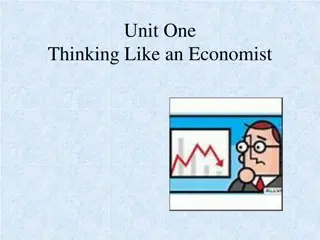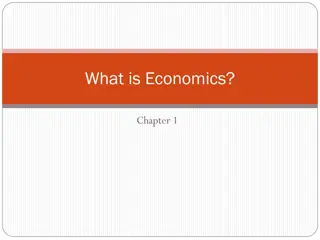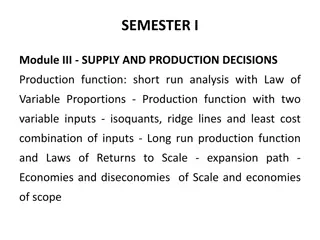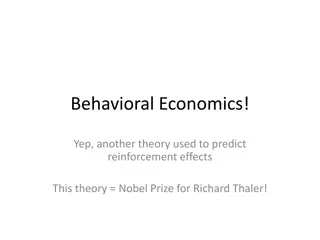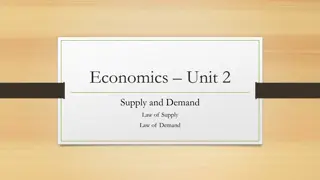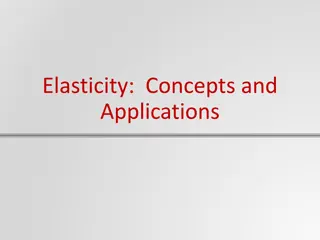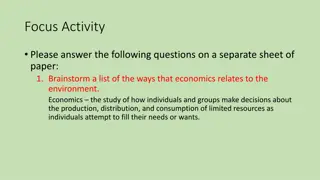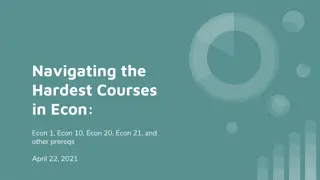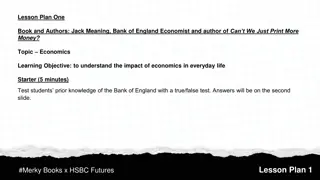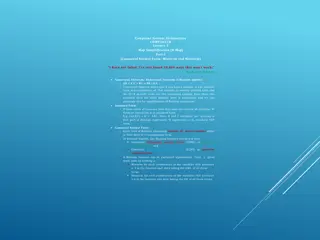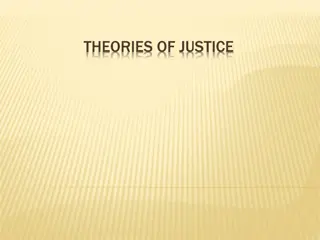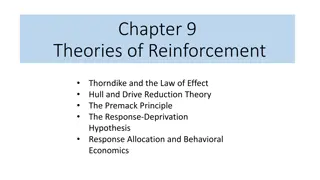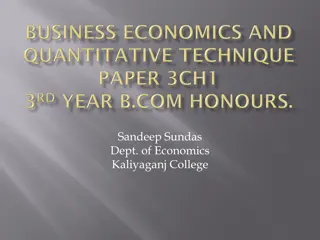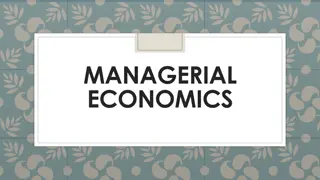Understanding Economics: Concepts and Principles Explained
Economics, derived from the Greek word Oikonomia, focuses on managing resources to achieve maximum output and satisfaction. It encompasses the study of wealth, choice-making, and dynamic growth. The discipline emphasizes the role of factors of production - land, labor, and capital - in generating income through rent, wages, interest, and profits. Key thinkers like Adam Smith have contributed to defining economics as the science of wealth and material well-being, highlighting the importance of self-interest in economic activities.
Download Presentation

Please find below an Image/Link to download the presentation.
The content on the website is provided AS IS for your information and personal use only. It may not be sold, licensed, or shared on other websites without obtaining consent from the author. Download presentation by click this link. If you encounter any issues during the download, it is possible that the publisher has removed the file from their server.
E N D
Presentation Transcript
INTRODUCTION TO ECONOMICS Dr. Pooja Singh, Assistant Professor, Deptt. Of Economics
From minimum or scarce resources maximum output or satisfaction should be achieved or gained. Resources /Factors of Production / Inputs Land Labour Capital Reward/Income Rent Wage Interest Entrepreneur Profit
What is Economics? Economics comes from the Greek word Oikonomia. Oikos(means a household) + Nomos(means management). So, it means household management. Aristotle described economics as a household management that means the problems of food, shelter, clothing, education, treatment etc. for family members and the process of solving these problems by earning money.
Segments of Economics Definitions: Science of Wealth Science of Material Well Being Science of Choice Making Science of Dynamic Growth & Development
Science of Wealth : "An inquiry into the nature and causes of the wealth of Nations". - Adam Smith (1723 -1790), the founder of economics.
Features of the Definition- Study of Wealth: Economics deals with the study of wealth only. Therefore, it is concerned with the activities of man related to production, consumption, exchange and distribution of wealth. Only Material Commodities: This definition conveys the feeling that Economics constitutes only material commodities while it ignores non-material goods as air, water and sunshine.
Stress on Wealth: Since the main aim of the political economy is to increase the riches of the economy, it gives more stress on wealth, not anything else. Causes of Wealth: Economics is considered as study of causes of wealth accumulation which brings economic development. In order to increase wealth, production of material goods will have to be increased. Economic Man: This definition is basically based on the man who is always aware of his self-interest that leads him to material gains.
Critics of the definition: Man becomes greedy i.e economic man. Improper for socialist pattern. Dismal Science[which doesn t give the accurate results]. Disparities of income and wealth started.
Science of Material Well Being: Welfare Definition: Economics is a study of man s action in the ordinary course of life . It enquires how he gets his income and how he spends it. -Alfred Marshall Features of definition:- 1. It is the study of mankind and the ordinary business life. 2.Economics is the study of wealth but more important is the study of man. 3.It emphasis on material requisites of well being (like food, cloth, shelter, etc.) 4.It emphasis on social welfare in terms of money.
Critics: 1.Some important components of the definition [ like ordinary business of like material requisites] were not clearly explained. 2.Complex Definition. 3.Marshall treated economics as a social science rather than a human science. 4.Welfare is subjective.
Science of Choice Making:- Economics is the science which studies human behaviour as a relationship between ends and scarce means which have alternative uses. - Lionel Robbins Features of Definition:- 1.Economics is the science 2.Unlimited wants ends 3.Limited means 4.Alternative uses of resources
Critics of the definition: It does not emphasis either on welfare or on material well being. This approach is more scientific . It emphasis on positive aspects of science. This definition reduces the subject matter by reducing it to theory of resource allocation. Robbin does not take into account the possibility of increase in resources overtime
Science of Dynamic Growth & Development: Economics is a study of how men and society choose, with or without use of money, to employ source productive resources which could have alternative uses, to produce various commodities over time and distribute them for consumption now and in the future amongst various people and group of society. -Paul A. Samuelson Features of Definition :- 1. It also emphasis on the problem of choice making. 2. By this emphasis it is proved that the problem of scarcity of resources is not merely confined to present but also to the future. 3.It is the study of dynamic approach by taking economic growth. 4.It is very comprehensive (have both aspects of welfare and choice making). 5.It has broaden the subject matter of economics. It includes consumption, production, exchange, distribution and public finance.
References 1.^ "Economics". Oxford Living Dictionaries. Oxford University Press. 2.^ "Economics". Merriam-Webster. 3.^ "economics". Oxford English Dictionary (Online ed.). Oxford University Press. (Subscription or participating institution membershiprequired.) 4. Smith, Adam (1776). An Inquiry into the Nature and Causes of the Wealth of Nations. and Book IV, as quoted in Groenwegen, Peter (2008). "Political Economy". In Durlauf, Steven N.; Blume, Lawrence E. (eds.). The New Palgrave Dictionary of Economics(second ed.). pp. 476 480. doi:10.1057/9780230226203.1300. ISBN 978-0- 333-78676-5. 5.Marshall, Alfred (1890). Principles of Economics. Macmillan and Company. pp. 1 2. 6.^ Robbins, Lionel (2007) [1932]. An Essay on the Nature and Significance of Economic Science. Ludwig von Mises Institute. p. 15. ISBN 978-1-61016-039-1. Further reading: Samuelson, Paul A; Nordhaus, William D. (2014). Economics. Boston, Mass: Irwin McGraw-Hill.


